Search Results
Showing results 201 to 220 of 337
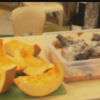
The Decayed Pumpkin
Source Institutions
In this "Sid the Science Kid" activity from Episode 106: My Mushy Banana, learners explore the effects of decay by comparing and contrasting something (an old pumpkin) that's decayed with the same thi
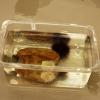
Exploration Tank
Source Institutions
This is a guide for facilitating interaction at a touch tank with marine animals. The instructions are for setting up a display in an informal science center, but could work anywhere.
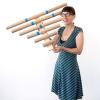
Pipes of Pan
Source Institutions
Create an instrument that you don't play--you just listen to it through tubes of various lengths.
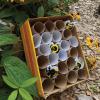
Pollinator Play
Source Institutions
In this activity, learners will build a bee hotel for pollinators. Learners will explore building and ecology through this activity.
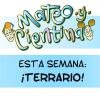
¡Terrario!
Source Institutions
En esta actividad, los aprendices harán un terrario usando materiales simples.
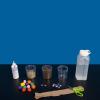
Make a Friend from Soil and Seeds
Source Institutions
Learners assemble a figure from a nylon stocking or sock stuffed with soil and seeds. The ends of the nylons inside the jar absorb water, which feeds the grass seeds.
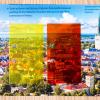
Color Table: Color your perception
Source Institutions
Look at pictures through different color filters and you'll see them in a new way. People have used color filters in beautiful photography or sending secret messages.
Many Seeds: Estimating Hidden Seeds
Source Institutions
In this activity, learners will estimate how many seeds are in a fruit or vegetable, then count to find out. The result: mix estimation with healthy eating.
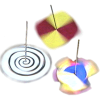
Spinning Tops
Source Institutions
Create your own spinning top, and explore color, shapes and spinning. This activity contains instructions for making your spinning top, and tips on how to design and decorate it.
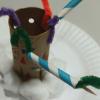
Coral Polyp
Source Institutions
In this activity, learners will create their own coral polyps - the basis for a coral reef.
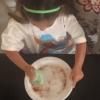
Sticky Snot
Source Institutions
In this activity, learners create slime to model mucus and examine how it collects simulated particles. Mucus keeps particles from the environment out of our lungs when we breathe.
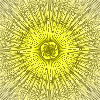
Tie Dye Painting
Source Institutions
This is an activity exploring color and color mixing.
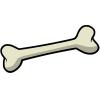
Calcium Collage
Source Institutions
In this activity (on pages 11-14 of PDF), learners cut out pictures from magazines of foods that help make bones strong and glue the pictures to a paper bone.
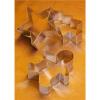
Active Touch
Source Institutions
In this activity (14th activity on the page) about the sense of touch, learners examine if it is easier or harder to identify an object if they move their hands over it.
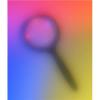
Color Spy
Source Institutions
In this activity (16th on the page), learners play a variation of the "I Spy" game to explore color. Learners work in teams with each team assigned a color.
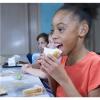
Taste Match Game
Source Institutions
In this activity (3rd activity on the page), learners taste test different foods and categorize them as sweet, bitter, sour, or salty. Learners compare their results with the group.
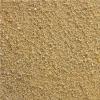
Touch Boards
Source Institutions
Use this activity (13th activity on the page) to introduce learners to the sense of touch. Learners collect objects of varying textures like feathers, rocks, sand, etc.
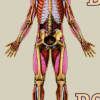
Sketch a Skeleton
Source Institutions
In this activity (on pages 15-18 of PDF), learners make a life-size two-dimensional paper model of their own skeletons.
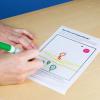
Exploring the Universe: Imagining Life
Source Institutions
“Exploring the Universe: Imagining Life” is a hands-on activity in which visitors imagine and draw an extreme environment beyond Earth, then invent a living thing that could thrive in it.
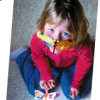
Symmetry of Butterfly Wings
Source Institutions
In this activity, learners investigate balance and symmetry by designing a symmetrical butterfly, using a paper cutout.
